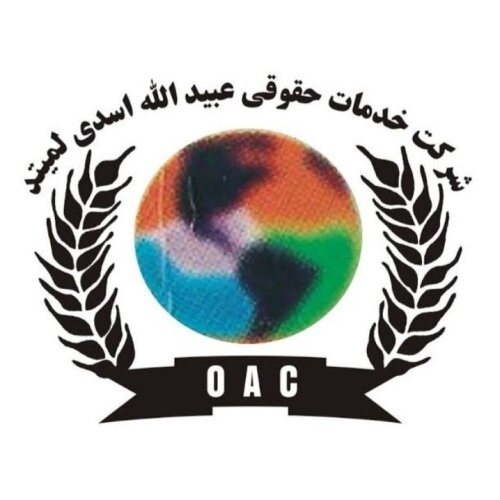Best Marriage Lawyers in Afghanistan
Share your needs with us, get contacted by law firms.
Free. Takes 2 min.
Free Guide to Hiring a Family Lawyer
Or refine your search by selecting a city:
List of the best lawyers in Afghanistan
About Marriage Law in Afghanistan
Marriage in Afghanistan is a revered institution intricately tied to the country's cultural and religious fabric. Afghan marriage laws predominantly derive from Islamic Sharia law, which governs personal and family matters. These laws emphasize the contractual nature of marriage, requiring the consent of both parties and the presence of witnesses. Despite the Islamic framework, local customs and tribal practices also heavily influence marriage procedures and arrangements.
Why You May Need a Lawyer
Engaging a lawyer for marriage-related issues in Afghanistan can be crucial for several reasons. You may require legal assistance to navigate the complexities of marriage contracts, especially when aligning them with local traditions and international standards. Legal counsel might also be needed in cases of disputes such as dowry disagreements, divorce, or child custody. Additionally, foreign nationals marrying Afghans might seek guidance to understand and comply with Afghan marriage regulations and processes.
Local Laws Overview
Key aspects of Afghan marriage laws include: - A requirement for the consent of both individuals intending to marry, although customs may sometimes influence the extent of freely given consent, especially for women. - The legal age for marriage is typically 16 for females and 18 for males, with some allowances for exceptions. - The marriage contract ('Nikah') is central, often accompanied by a 'Mahr,' a mandatory gift from the groom to the bride. - Polygamy is permitted under Afghan law, provided the husband treats all wives equitably according to Islamic tenets. - Divorce is allowed but can be challenging for women due to societal norms and legal stipulations about proving grounds for dissolution.
Frequently Asked Questions
What is the legal age for marriage in Afghanistan?
The legal age for marriage is generally 16 for females and 18 for males. However, there are exceptions where marriage can occur with parental consent and judicial approval.
Can women initiate divorce in Afghanistan?
Yes, women can initiate a divorce, but it may require meeting specific legal justifications and navigating societal pressures.
Is polygamy legal in Afghanistan?
Polygamy is legally permitted for men under Afghan law, provided they adhere to Islamic principles of treating all wives equally.
What role do family and tribal customs play in marriage?
Family and tribal customs play a significant role, often overlapping with formal religious and legal practices, which can influence marriage arrangements and expectations.
How is dowry handled in Afghan marriages?
Dowry practices are prevalent, with the groom's family traditionally providing gifts or money to the bride's family, though this is not mandated by Afghan civil law.
Are there legal consequences for forced marriages?
Forced marriages contravene Afghan law and international human rights norms, although enforcement can be inconsistent due to cultural practices.
Can foreign nationals marry in Afghanistan?
Yes, foreign nationals can marry in Afghanistan, but they must comply with Afghan law and might face additional bureaucratic procedures.
What is Nikah, and why is it important?
'Nikah' is the marriage contract which formalizes the union under Islamic law, requiring mutual consent and often the presence of a cleric.
Are civil marriages recognized in Afghanistan?
Afghanistan does not traditionally recognize civil marriages; religious ceremonies are primarily acknowledged officially.
What are the rights of women in Afghan marriages?
Women have specific rights under Afghan law, as dictated by Sharia, though practical enforcement can vastly differ due to local customs and societal norms.
Additional Resources
For those in need of more information or legal assistance, the following can be helpful: - Ministry of Justice of Afghanistan: Offers insights into family law and personal status matters. - United Nations Assistance Mission in Afghanistan (UNAMA): Provides resources and assistance regarding human rights, including marriage and family law. - Afghan independent legal aid organizations: Offer support and legal advice to individuals navigating personal legal challenges.
Next Steps
If you need legal assistance regarding marriage in Afghanistan, consider the following steps: 1. Research and contact a reputable lawyer specialized in family law who understands both local customs and Islamic law. 2. Gather all necessary documents, such as identification, birth certificates, and any existing legal contracts or agreements. 3. Prepare to discuss your specific needs, whether it's drafting a marriage contract, handling a dispute, or understanding your legal rights and obligations. 4. Explore local and international organizations that may offer additional support and guidance, especially if you’re facing sensitive issues like forced marriage or domestic violence.
Lawzana helps you find the best lawyers and law firms in Afghanistan through a curated and pre-screened list of qualified legal professionals. Our platform offers rankings and detailed profiles of attorneys and law firms, allowing you to compare based on practice areas, including Marriage, experience, and client feedback.
Each profile includes a description of the firm's areas of practice, client reviews, team members and partners, year of establishment, spoken languages, office locations, contact information, social media presence, and any published articles or resources. Most firms on our platform speak English and are experienced in both local and international legal matters.
Get a quote from top-rated law firms in Afghanistan — quickly, securely, and without unnecessary hassle.
Disclaimer:
The information provided on this page is for general informational purposes only and does not constitute legal advice. While we strive to ensure the accuracy and relevance of the content, legal information may change over time, and interpretations of the law can vary. You should always consult with a qualified legal professional for advice specific to your situation.
We disclaim all liability for actions taken or not taken based on the content of this page. If you believe any information is incorrect or outdated, please contact us, and we will review and update it where appropriate.
Browse marriage law firms by city in Afghanistan
Refine your search by selecting a city.









